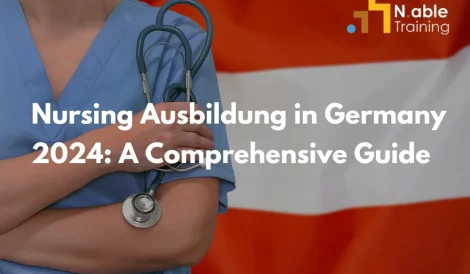A Guide by the German Language Institute for Goethe A1 Exam syllabus
The Goethe A1 Exam is an essential step in your journey to mastering the German language. Whether you are planning to study, work, or live in a German-speaking country, this exam serves as a fundamental benchmark for assessing your proficiency. In this comprehensive guide, brought to you by the best German Language Institute in Kerala, we will delve into the details of the Goethe A1 Exam, covering its structure, content, and what you need to know to excel.
Understanding the Goethe A1 Exam:
The Goethe A1 Exam is the beginner level of the Goethe-Institut’s German language proficiency exams. It assesses your ability to use basic language skills in everyday situations. This exam is designed for individuals who have just started learning German and have a limited vocabulary.

Exam Structure
The Goethe A1 Exam is divided into four sections, each evaluating a specific language skill:
- Listening Comprehension (Hörverstehen): In this section, you’ll listen to simple spoken German and answer questions to demonstrate your understanding of basic spoken language.
- Reading Comprehension (Leseverstehen): You’ll be presented with short texts in German and need to answer questions to show your understanding of simple written German.
- Writing (Schreiben): This section assesses your ability to write basic information in German. You may be asked to complete sentences or write short texts.
- Speaking (Sprechen): In the speaking section, you’ll engage in a conversation with an examiner. You’ll be asked to introduce yourself, respond to questions, and engage in basic conversations
Preparation for the Goethe A1 Exam:
Passing the Goethe A1 Exam requires dedicated preparation. Enrolling in a language course at a reputable institution like the German Language Institute is highly recommended. In such courses, you will receive structured guidance, practice materials, and the opportunity to interact with experienced instructors.
In addition to formal instruction, self-study is essential. Make use of textbooks, online resources, language learning apps, and practice exams to reinforce your skills. Regular practice with a language partner or tutor can greatly enhance your speaking and listening abilities.
Comparison with Other German Language Exams
While the Goethe A1 Exam is one of the most recognized German language proficiency tests, it’s not the only one available. Alternate exams like the ÖSD (Austrian German Language Diploma), TestDaF, and TELC also serve similar purposes but differ in focus, format, and acceptance. The ÖSD exam, for example, is tailored to Austrian German and is widely recognized in Austria, while TestDaF is more academic, designed for students who wish to pursue higher education in Germany. Choosing the right exam depends on your goals, be it studying, working, or living in a German-speaking country.
Conclusion:
The Goethe A1 Exam is your entry point into the world of the German language. Understanding the content and structure of the exam is vital for success. If you are serious about achieving proficiency in German, consider enrolling in a language course at the German Language Institute, where you’ll receive the support and guidance needed to excel in the Goethe A1 Exam and beyond. Remember, learning a new language is a journey, and success comes with dedication and practice. Good luck on your path to language proficiency!
nable
As the leading German language institute in Kochi, Nable is dedicated to empowering students with exceptional language skills and cultural understanding. Our institute goes beyond conventional training methods by fostering an engaging and supportive learning environment. At Nable, we are not just educators; we are your partners on the journey to mastering the German language.




